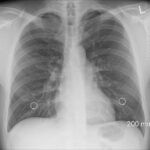When you hear “lung cancer,” the first thing that probably pops into your mind is smoking. And while smoking is indeed a major risk factor, there’s a common myth that lung cancer is only something smokers need to worry about. But that couldn’t be further from the truth! It’s time to bust some myths and talk about lung cancer in a way that doesn’t involve jumping to conclusions. So, let’s set the record straight once and for all — lung cancer is not just for smokers!
First things first, lung cancer doesn’t play favorites. Anyone, regardless of whether they smoke or not, can get lung cancer. While smoking is still the leading cause, non-smokers account for a significant percentage of lung cancer cases. In fact, about 20% of people diagnosed with lung cancer have never smoked a cigarette in their lives. Crazy, right? So, if you’ve never puffed on a cigarette or used a vape, don’t assume you’re in the clear. Air pollution, secondhand smoke, and even genetic factors can contribute to the development of lung cancer. You can’t always control what’s in the air, but you can control how informed you are about the risks.
Now, here’s another myth that needs to go: lung cancer only affects older people. Sure, lung cancer is more common in people over 60, but it can affect younger people, too. While the majority of lung cancer cases happen later in life, younger adults — even those in their 30s and 40s — can develop lung cancer. In fact, there’s been a rise in lung cancer diagnoses among younger, non-smoking individuals, particularly in women. The message here is clear: no one is immune, regardless of age.
And don’t even get me started on the idea that if you don’t have any symptoms, you’re in the clear. By the time most people notice symptoms, the cancer may have already spread. Lung cancer can be sneaky, showing no signs at all in the early stages. That’s why routine screening is so important, especially if you’re at a higher risk — and yes, that includes non-smokers who might have a family history of lung cancer or other risk factors. Catching it early makes all the difference.
Another myth is that lung cancer symptoms are obvious. People often think of a persistent cough or chest pain as the telltale signs, but the symptoms of lung cancer can be subtle and easily mistaken for something less serious. For instance, shortness of breath, unexplained weight loss, fatigue, or even frequent respiratory infections can be red flags. Don’t assume it’s just a cold or bronchitis — if something doesn’t feel right, get it checked out.
Finally, let’s talk about treatment. Some people still believe that if you’re diagnosed with lung cancer, there’s nothing that can be done, but that’s simply not true. Treatment for lung cancer has come a long way, and options like surgery, chemotherapy, immunotherapy, and targeted therapies have improved outcomes for many patients. While early detection is still key, medical advances mean that there’s hope — even for those diagnosed with later-stage lung cancer.
The takeaway here is that lung cancer isn’t just a smoker’s disease, and it can affect people of all ages and lifestyles. It’s essential to challenge the myths, get screened if you’re at risk, and stay informed. Lung cancer is serious, but understanding it better can lead to earlier detection and better outcomes. So, let’s stop believing the myths and start spreading the truth!








